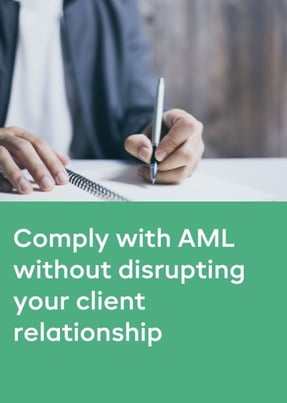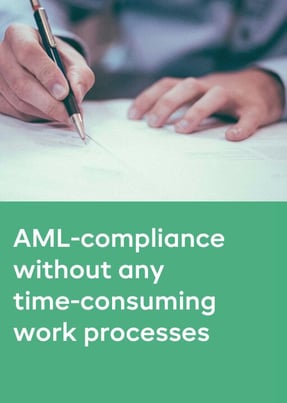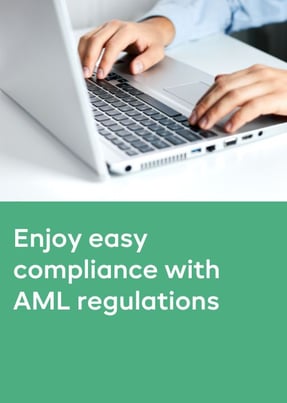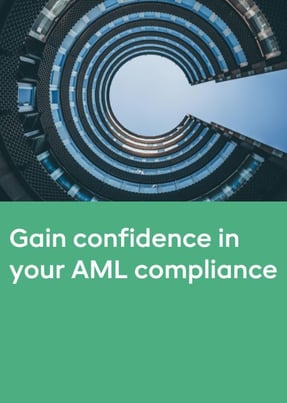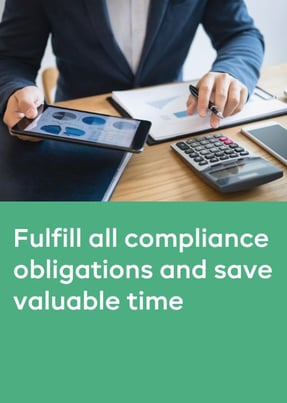- Products
- RegLab for ...
- Knowledge centre
Download the AML glossary >
 Discover the essential AML compliance terminology and gain instant access to a comprehensive guide
Discover the essential AML compliance terminology and gain instant access to a comprehensive guide - The company
Working at RegLab >
Join RegLab as the new Product Owner of our software tool and change the way the legal community approaches anti-money laundering.
There may not be any vacancies that perfectly match your profile, but that does not mean there is no room for someone who can improve RegLab.
- Book a demo
What is and how do I screen a PEP?
A PEP (Politically Exposed Person) is someone who holds an influential political or administrative position. Due to their position, they are considered to pose a higher risk of corruption, money laundering or other financial crimes. According to the AMLD, it is mandatory to conduct extra careful customer due diligence when doing business with a PEP. But when is someone a PEP and how do you check this?
When is someone a PEP?
Someone is considered a PEP when he or she:
- Holds or has held a high political, administrative or official position.
- Has a direct family relationship with a PEP.
- Has a close business relationship with a PEP, such as a business partner or personal advisor.
This applies to both domestic and foreign politically prominent persons.
Some examples of Politically Exposed Persons are:
- Heads of state, heads of government, ministers, state secretaries
- Members of parliament or members of similar legislative bodies (House of Lords and House of Commons)
- Ambassadors, chargés d'affaires or senior officers in the armed forces
- Members of the executive committee of political parties
- Directors of international organisations
- Members of supreme courts, constitutional courts and courts of audit
- Members of the board of directors of central banks
- Directors or supervisors of state-owned companies
Why do you need to check a PEP?
Business relationships with PEPs carry an increased risk of financial and economic crime. This does not mean that a PEP is always involved in illegal activities, but the risk of conflicts of interest, corruption or money laundering is statistically higher. The AMLD therefore stipulates that extra care must be taken, even in existing relationships or when entering into a relationship involving immediate family members/acquaintances of a PEP.
How do you investigate and deal with a (potential) PEP?
If you suspect that a client or business relation is a PEP, you are obliged under the AMLD to carry out enhanced customer due diligence. This means not only determining whether someone is actually a PEP, but also taking additional measures to manage risks.
Follow these steps:
- Request a PEP declaration: Ask the (potential) client for a signed declaration stating whether they have PEP status. Have this declaration substantiated with up-to-date information.
- Perform an external PEP check: Check the data via reliable and recognised databases or screening systems. This provides objective confirmation of PEP status.
- Investigate the origin of assets: Record where the assets or funds come from and document these findings carefully. This is an important part of risk management.
- Approval from senior management: Discuss new or continuing relationships with senior management and obtain formal approval before entering into or continuing the relationship.
- Conduct periodic reassessments: Regularly check whether the PEP status is still current and whether new risks have arisen. Risk profiles can change over time.
Tip: Always work with up-to-date sources, keep all documentation in the client file and strictly follow internal procedures. This will ensure that you comply with the AMLD obligations and avoid compliance risks.
Risk classification
The presence of a PEP will often entail a high or at least an increased risk. This is just one of many risk indicators that may arise. The final risk classification is determined on the basis of other identified risks. We advise every firm to determine what constitutes a low, medium and high risk and how to act in each case. You decide for yourself when a client has a high risk profile.
Guideline: if the client is a PEP, they will almost always be assigned a high risk classification. If, for example, a PEP is present in the client's ownership structure, the risk classification will depend on other risks present. In any case, the client will never be assigned a low risk classification, but rather a medium or high one.
Continuous monitoring
Continuous monitoring and periodic assessments are crucial. During each assessment, the risks present will be reviewed by means of a (more rigorous) customer due diligence process. This allows for regular checks to ensure that the risk is still acceptable. Make sure that the information collected is always up to date so that you can take timely action in response to changes in risk profiles.
The enhanced investigation should be seen as a preventive measure. An increased risk does not mean that a PEP is actually involved in illegal activities. It is merely an indication that extra vigilance is required with regard to politically prominent persons.
RegLab for investigating a PEP
Do you also spend a lot of time on Know Your Customer and Customer Due Diligence to comply with the obligations under the AMLD, including PEP screening? Despite the frustrations they cause, CDD principles are becoming increasingly important. RegLab helps organisations to comply with the laws and regulations surrounding the AMLD quickly, safely and with ease.
Themed file: fully prepared for the supervisor’s audit
This article is part of a number of articles and downloads that will help you prepare yourself for the supervisor’s visit. This content is based on a supervisor's FAQs during an audit. Do you want to be 100% AML-proof and ready for the supervisor’s visit? Find all FAQs in our Knowledge Centre.
Knowledge centre
Download the AML glossary
Gain instant access to the AML glossary and essential compliance terminology.
